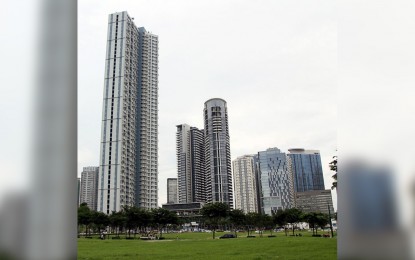
File photo
MANILA – Economic managers are optimistic that the country’s robust economic growth will continue in the coming years.
In his speech during The Manila Times' midyear economic forum on Tuesday, National Economic and Development Authority (NEDA) Secretary Arsenio Balisacan said the government "anticipates sustained and robust growth, promising employment figures, and a positive trend towards reaching our inflation target" in 2023.
"Multilateral institutions project that the country will outpace many of its regional peers amid external challenges," Balisacan said in his speech delivered by NEDA Undersecretary Rosemarie Edillon.
The economic team earlier set a growth target of 6 percent to 7 percent for this year.
"Furthermore, we aim to raise the economy's growth to a range of 6.5 percent to 8.0 percent from 2024 to 2028, in an ambitious push to significantly reduce poverty rapidly and sustainably," Balisacan said.
To attain these targets, Balisacan cited the importance of attracting high levels of investment and improving infrastructure.
He said East Asian tiger economies and China were able to maintain high levels of investment due to the development of roads, ports, bridges, railways, energy and water infrastructure, telecommunications, and logistics.
"The Philippines has much to learn from its East Asian neighbors and must catch up with its dynamic Southeast Asian counterparts," he added.
Balisacan, however, committed that the Philippine government will foster a favorable investment climate, including within the public infrastructure sector.
Between 2023 and 2028, the government aims to sustain annual spending on infrastructure at 5 to 6 percent of gross domestic product (GDP).
"By addressing the fundamentals, such as physical and digital connectivity, water resources, and agriculture, we anticipate attracting better-quality jobs with higher wages and incomes for Filipino workers," Balisacan added.
Over 6% economic growth
Bangko Sentral ng Pilipinas (BSP) Governor Felipe Medalla said an economic growth of around 6 percent for the second quarter and the full year is possible but noted “it’s hard to grow when your base is larger.”
“But what we know, the numbers I have seen and from the forecast I’ve seen from the staff, it’s going to be more than 6 percent. Whether it’s higher or lower than the first quarter, we don’t know,” he said in an interview on the sidelines of the forum.
GDP in 2022 expanded 8 percent, 7.5 percent, 7.7 percent, and 7.1 percent for the first to fourth quarter, respectively.
GDP in the first three months of this year surpassed expectations after it stood at 6.4 percent, slower than the 7.1 percent in the last quarter of 2022.
Authorities and analysts traced the slower domestic expansion to the impact of the elevated inflation rate, which peaked so far this year last January when it accelerated to 8.7 percent, the fastest in the last 14 years.
Medalla said the domestic economy has the capacity to remain robust despite the challenges partly because of the rising middle class.
He also cited the importance of demographic dividend and the improvement of infrastructure.
Department of Finance Secretary Benjamin Diokno, for his part, also believes that the growth target will be met.
"For the first quarter of the year, the Philippine economy sustained its growth momentum and performed remarkably well despite the lingering instability in the global economy. At 6.4 percent, we managed to outpace major emerging economies in Asia, such as India, Malaysia, Indonesia, China, Vietnam, and Thailand," he said in a recorded speech.
Diokno said they are confident that growth will quicken to 6.5 to 8 percent from next year until 2028.
He said infrastructure spending must be kept at 5 to 6 percent of GDP annually until 2028.
He also cited the importance of productive spending.
"On the back of the previous administration’s infrastructure momentum, the Ferdinand Marcos Jr. administration is determined to address the country’s infrastructure backlog to facilitate high-value investments and generate more, quality, and green jobs," Diokno added.
Inflation
Medalla said inflation is now expected to remain on its downward trend, with the level seen within the government’s 2 to 4 percent target band by October or November this year.
The rate of price increases slowed further to 6.1 percent last May from 6.6 percent the previous month.
The average inflation in the first five months this year stood at 7.5 percent.
Monetary authorities forecast inflation to average at 5.4 percent this year.
Medalla said inflation may likely reach the 2 percent level by January 2024 due to base effects of the elevated inflation rate at the start of this year.
“As soon as base effects fade, inflation will start moving closer to 3 (percent) and may even pass 3 (percent) by the middle of next year,” he added.
BSP’s average inflation forecast for 2024 was hiked to 2.9 percent from 2.8 percent. (PNA)
